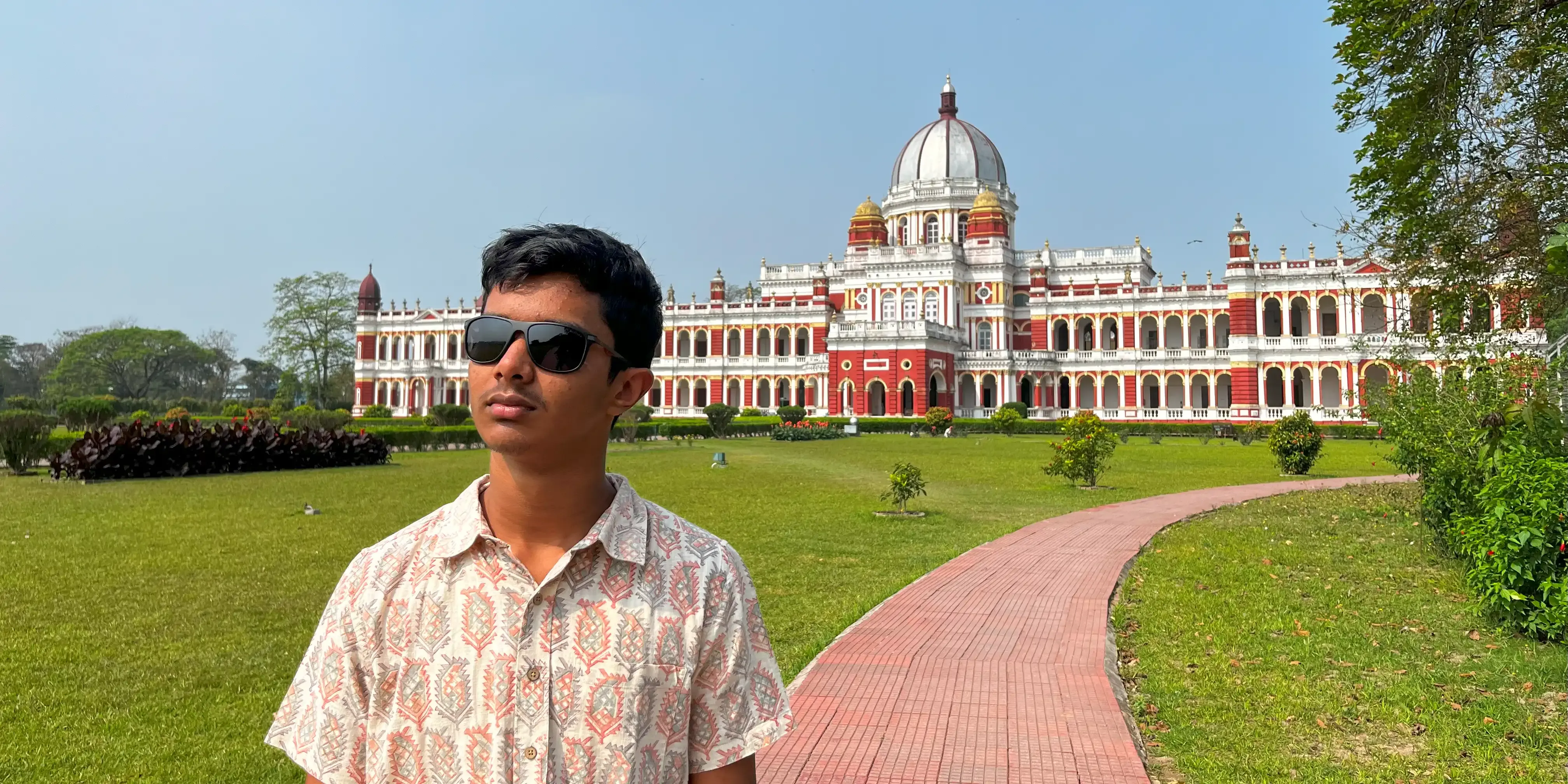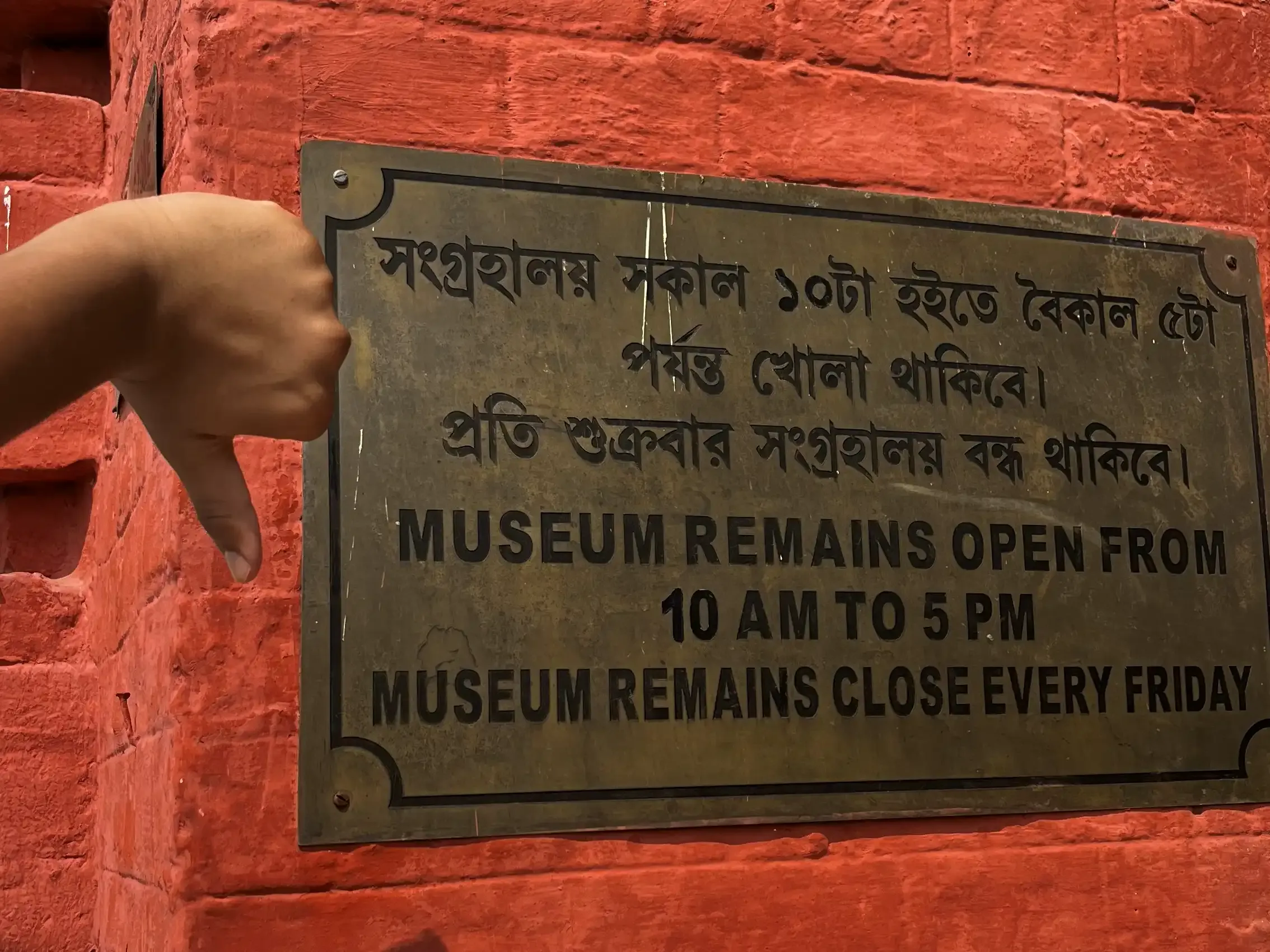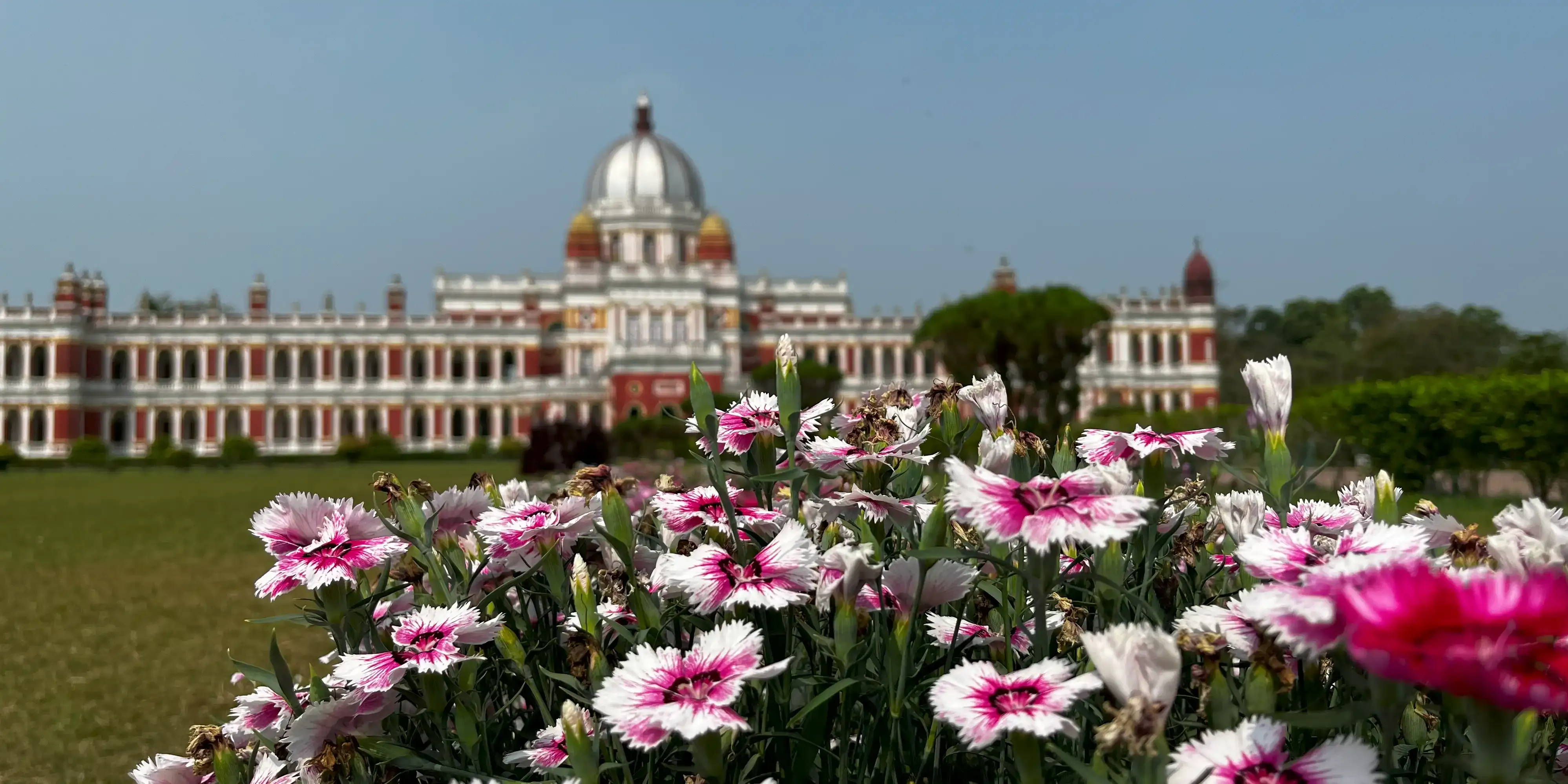The Trip to Cooch Behar

The journey to Cooch Behar was our way of breaking free from the monotony of sultry days spent idly at my grandmother’s house. That morning was different—cool, quiet, and almost dreamlike. No blaring horns, no endless two-wheelers zipping by. The air was still fresh, the sun still stretching behind the horizon. With our light bags ready from the night before, we set off from Siliguri towards the New Jalpaiguri Railway Station to catch the Vande Bharat Express to Guwahati.
We arrived early, giving us enough time to watch the platform slowly fill with anticipation. The train arrived exactly on time, letting out a single authoritative hoot before gliding in smoothly. Boarding was effortless—none of the usual chaos of elbows and luggage wars. Inside, the Vande Bharat was a marvel: spotless interiors, plush seating, and the faint scent of a brand-new car. Words like modern, posh, and streamlined rarely align with Indian Railways, but here they did. After a few quick selfies and some gawking, we settled in. As the train slid out of the station into the faint gold of sunrise, I let my eyes close again. Combat doctrine says: “If there’s time to sleep, you sleep.”
When I woke, the scene outside was postcard-worthy—sunlit paddy fields, scattered ponds, and the occasional farmer working his plot. Groggily, I headed to the restroom bracing for the worst, but to my shock, it was clean. No stench, no mystery puddles. A small miracle, perhaps courtesy of Lord Ram or simply the Amrit Kaal. In just about 100 minutes, we covered the 132 kilometers to Cooch Behar.
The station was eerily quiet—more fitting for a forgotten outpost than a historic royal capital. Only two other passengers disembarked with us, and most of the traffic was freight trains. We decided to walk to the Rajbari (the old royal palace), despite Google Maps warning us it was closed for the day. Determination—or sheer stubbornness—won.
The walk through town was a strange collage. Stocked granaries in a state often described as hungry. A black Audi idling in a surprisingly neat slum. A military housing complex immaculate in whitewash standing next to crumbling apartments that looked like abandoned refugee camps. Within a two-mile radius, there was a shiny shopping mall and a centuries-old bazaar, both alive in their own way.
History break: Cooch Behar was once the capital of the Cooch Bengali royal family, whose vast lands stretched into what is now Bangladesh. Political shifts and partition-era turmoil stripped much of their influence. The grandeur here never rivaled Rajasthan’s palaces, but it was once a cultural hub. Among its most famous figures was Gayatri Devi, the princess who later married Maharaja Sawai Man Singh II of Jaipur. With her western education and elegance, she influenced the modernization of Jaipur and remains a celebrated figure for her grace, advocacy for women’s education, and preservation of heritage.
Before reaching the palace, we stopped for breakfast: the quintessential Bengali combo of oil-soaked Pooris and potato curry. Absolutely delicious—the potatoes melted into the gravy, the Pooris puffed to perfection. It was all served on “plates” made of repurposed pages from an 8th-grade Bengali maths textbook. The guilt of denying some student their geometry lesson was drowned by two syrupy Gulab Jamuns.
The Rajbari finally came into sight. From a distance, the structure had a certain charm. Up close, the disappointment seeped in. Some domes had steel-and-aluminum replacements with rust creeping in. The front gardens were well-kept, but the palace exuded a faded glory. Public restrooms were habitats for spiders and mosquitoes rather than tourists. Still, we managed some social-media-worthy shots of the lawn with the palace behind us.

It was Friday—a weekly holiday—so the palace interiors and museum were closed. Research would have saved us from that mistake. Still, the grounds had their own quiet dignity.
We caught a North Bengal State Transportation Corporation bus back to Siliguri. Its interior was cleaner than the paan-stained exterior, but that was where the good news ended. Imagine a human sauna on wheels, moving at a snail’s pace for three hours. Paan-chewing passengers contributed “art installations” to the roadside at regular intervals.

When we finally disembarked at the North Bengal University gates, the shaded campus trees were a blessing. The last stretch back to my grandmother’s house was quiet, the anticipation of an ice-cold shower and a healthy Bengali dinner keeping us going.
Pictures 2024 Kochbihar
About the Author

Aarush
A bright, independent teen who finds comfort in books and courage in his own voice. He writes with conviction—reflecting on history, identity, and life’s journey.
View all posts →

